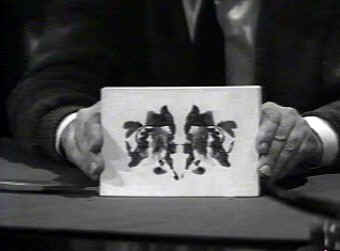riding the rails

This week I'm just a little less crazy than I was last, thanks to a diagnosis that in three not-so-short words moves me swiftly from the psychosomatic column to the realm of medical legitimacy. The words are cervical spondylotic myelopathy, and while their ramifications don't thrill me, I may as well have a name for the symptoms that have clearly set up camp. Hell, they've pitched a tent, raised their little troop flag, built a fire in the pit of my stomach, and started to roast wienies—all very much without my consent. Which is why it has sucked so much wind for the past 13 months to be told I'm a head case.
Cervical spondylotic myelopathy is a fancy-schmancy way of saying I have spinal arthritis with neurological complications. I have bone spurs at C5 and C6, as well as a bulging disc, all of which cause swelling of spinal ligaments when agitated. The swelling of the ligaments narrows my spinal canal, which compresses nerves and disrupts their signals to the rest of my body, explaining the drunken-sailor walk, the slowing of my responses, and the numbness in my limbs—as well as the waxing and waning of said features. The narrowed canal also impedes blood flow to my brain, causing the dizziness, fatigue, and blackouts I've been experiencing. In fact, I had a blackout just yesterday morning to celebrate the diagnosis.
So, to recap, I've had a head CT, three MRIs (one of the brain and two of the cervical spine—both soft tissue and skeletal), a lumbar puncture (euphemism for the dreaded words spinal tap, a procedure I let the neurologist talk me into trying without anesthetic since he said it's easier that way to “hit the target”), a nerve-conduction test, eight hours of neuropsychological testing (after which I was pronounced cogent but "slow"), a sleep-deprived EEG (for which I had to pull my first all-nighter since college—total awake time prior to test: 30 hours), Holter heart monitoring (24 hours during which I was wired and saddled with enough equipment to make me look a little pregnant), an echocardiogram, and enough blood drawn to film the prom scene in Carrie.
At various times I've been told my symptoms were the result of panic, psychomotor retardation (a slowing of motor skills due to prolonged depression), and conversion disorder (in which emotional issues are avoided or resolved through physical disabilities).
We might have come close to answering the puzzle months ago, when my GP noted my positive blood tests for antinuclear antibodies and rheumatoid factor and sent me to a rheumatologist. But the rose-colored-bespectacled specialist felt up my finger, elbow, and knee joints and, finding no obvious swelling, dismissed my GP's concerns. My 5% chance of having a positive ANA in the absence of disease being exponentially decreased by the simultaneous likelihood that my RF reading is a false-positive, his careless dismissal of my case seems unconscionable to me now.
I didn't want this to turn into a rant, but I guess that worm has already turned.
When other explanations don't come easily, I think doctors find it very convenient to write off patients with psychiatric histories as having psychosomatic disorders. And I was just crazy enough that I was beginning to believe they could be right. It gets slippery, because the more a patient stamps her feet and insists something's physically wrong, the more crazy she can seem. Then every inconclusive test becomes yet another nail in her coffin of delusion.
Worse, when a neurologist who saw me for all of 15 minutes diagnosed me with conversion disorder, he proceeded to lecture me in a paternal tone that the sooner I accepted it the better my chances for recovery. He added that if I sought enough second opinions, I could probably find a doctor who'd be willing to diagnose me with something. In other words, his judgment was beyond reproof. Did I mention that he was about a decade younger than I?
Once he had entered his opinion in my file, getting further tests was, as my GP put it, a political game. He still believed my symptoms had a genuine physiological cause, but he had now been overruled by two specialists—the bug-eyed rheumatologist and my Doogie Howser neurologist.
Thankfully, my GP stuck by me and slimed me into a third MRI, which proved the charm.
I have no doubt that there are people who wait longer than 13 months for diagnoses. But take it from me, anyone who wasn't nuts to begin with who goes through over a year of diagnostics without any clinical findings, gawd help them, they're on the express train to certifiability.







